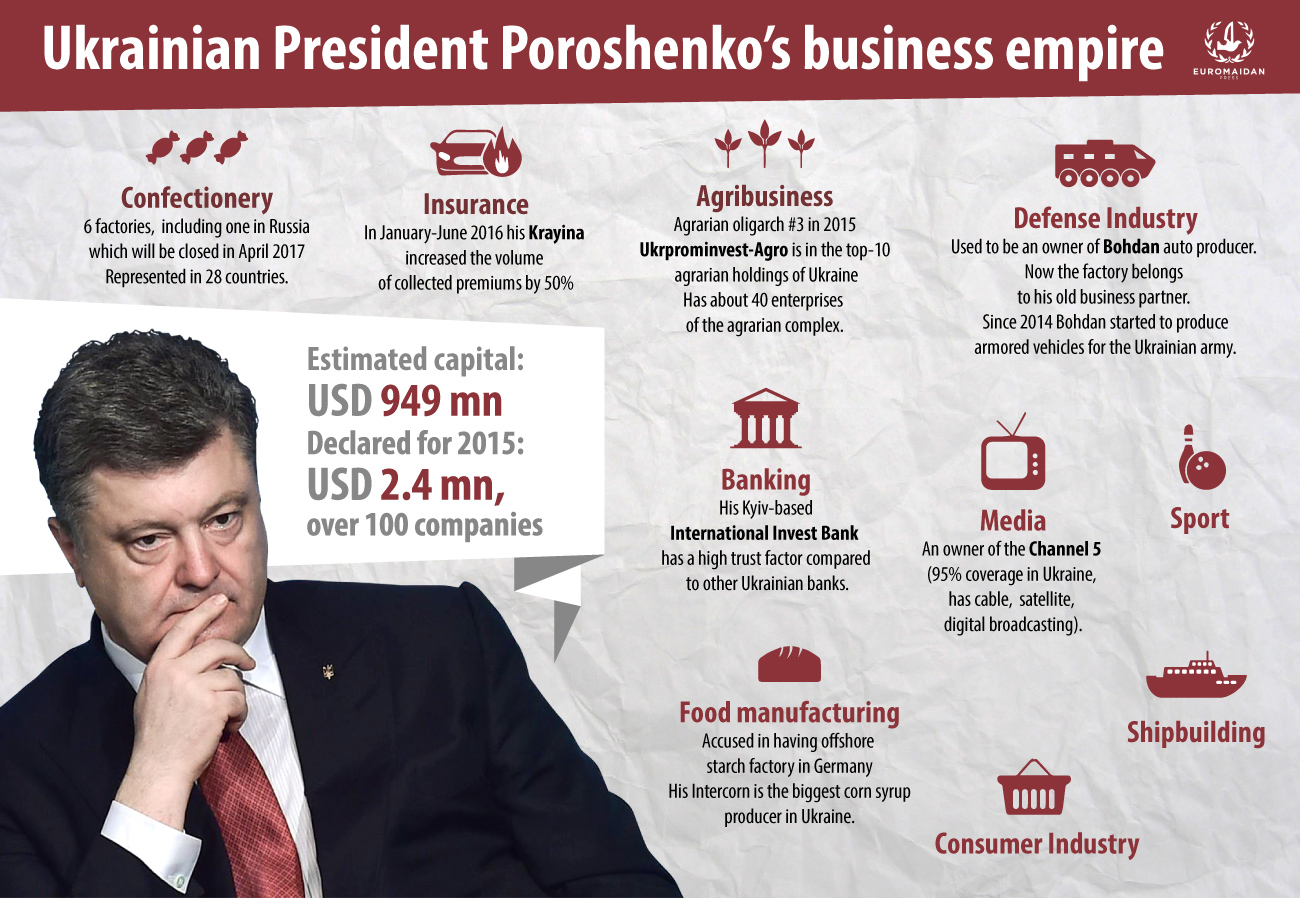The corporation Roshen belonging to Ukrainian President Petro Poroshenko is closing its confectionery fabric in Lipetsk, Russia. News about the decision is published on the official site of the corporation. It explains that the fabric is closing because of the financial and political reasons.
The confectionery fabrics Roshen was one of two things for which Poroshenko was criticized the most when he became President in 2014. His presidency raised discussions on whether it’s right for the President of Ukraine to be one of its major oligarchs. Poroshenko was also criticized for upholding his ownership of the TV channel (5 Kanal). After winning elections, Poroshenko announced that 5 Kanal is not for sale, but promised to sell Roshen. Two and a half years into his presidency, this has not happened. The Panama Papers offshore scandal in April 2016 revealed that Poroshenko handed Roshen to a blind trust, which happened in January 2016, according to his financial advisor. Poroshenko’s legal advisor explained that in doing this, Poroshenko lost his influence on Roshen. Whether this is true or not, the Roshen corporation has not been sold.
Roshen’s Lipetsk factory in Russia was especially problematic. Not only was it owned by the President of a Ukraine, but it operated in a country with which Ukraine was de facto at war. Poroshenko condemned Russian aggression against Ukraine and paid taxes to this aggressor all at the same time.
Moreover, in October 2016 Russian media reported the explanation of Russian President Vladimir Putin for why the Roshen factory was allowed to keep working in Russia. Putin said Russia respects the property rights of foreign investors, including the Ukrainian president. Thus, Poroshenko and Putin were enemies on the battlefield, but in business matters Poroshenko was an investor and Putin was the host.
Now Roshen announced that the factory will shut down all production in April 2017. Still, the decision was explained not by ethical concerns arising with a president running a business in a country with which he is de facto at war, but by legal and financial problems.
The statement on the official site of the corporation says that due to the imposed arrest on the factory by the Investigation Committee of the Russian Federation, it became impossible to sell it.
“Starting from 2013 the production at the Lipetsk confectionery factory fell threefold. The reason for that was also a sharp decline in assortment after Rospotrebnadzor’s [Russian consumer rights protection institution – Ed.] unreasonable bans on the import of Ukrainian Roshen products to the territory of the Russian Federation by in 2013,” says the statement.
Also, the corporation complains of the discreditation campaigns against the factory in Russian and Ukrainian media, pressure of trade organizations in some regions, and reduction of the general purchasing power.
According to liga.net, during 2014-2016 the Roshen corporation received and withdrew to Ukraine $72.06 mn of dividends from the Lipetsk assets. In April 2016, Russian media informed that Roshen payed RUB 284 mn ($4.8 mn) taxes to Russia in 2013.
The confectionery business in not the only source of revenue for the President Poroshenko. The second major area where he is involved is agriculture. His business interests also include investment, banking, food manufacturing, shipping, defense industry and other. The success of some of his businesses can be explained by created by Poroshenko circle of right people working on key governmental positions. Read more about them in the investigation of Kyiv Post.

According to the common project of the media Novoe Vremya and Dragon Capital, Poroshenko is the 4th richest person in Ukraine. The amount of his assets is $949 mn.
Read more: Petro Poroshenko, the oligarch president of Ukraine





